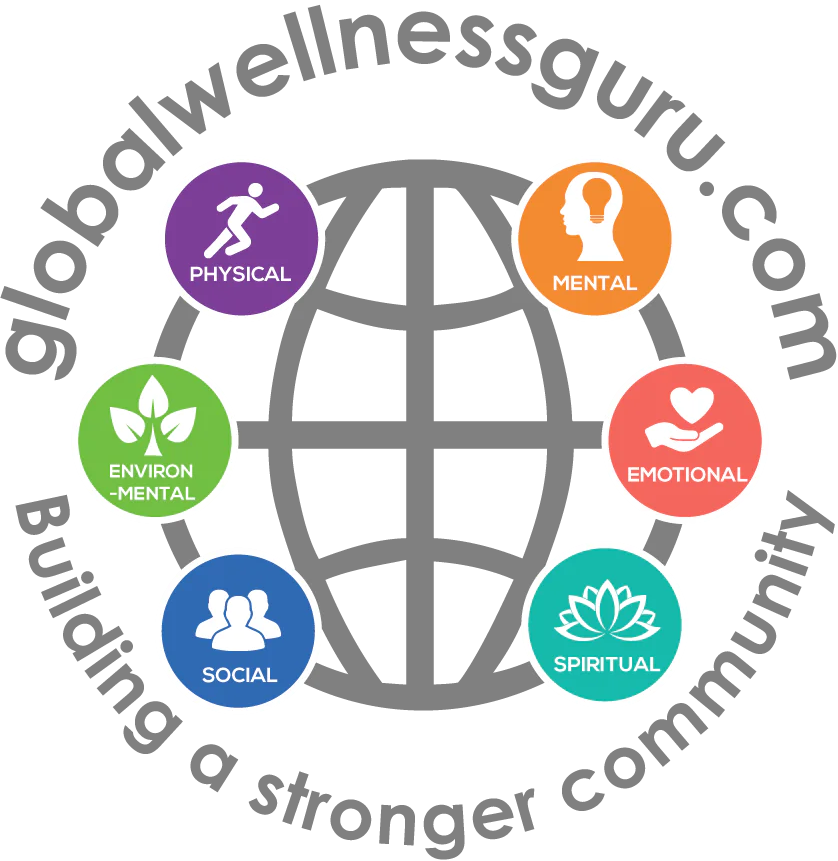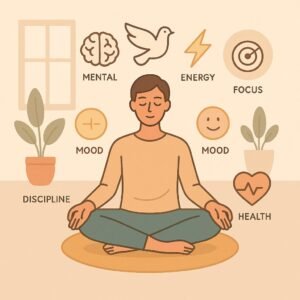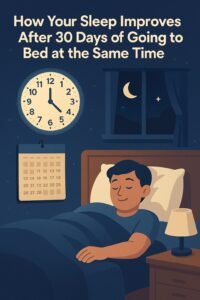Confidence is like a little fire inside you. It helps you speak up, try new things, and face big moments. But sometimes, that fire gets dim—maybe because of stress, life changes, or always putting others first. What if saying “no” could light it up again? This article is about what happens when you say “no” every day for a week. We’ll go through it day by day, explain why it works, and share easy ways to handle any tricky bits.
Why Confidence Is Awesome and How ‘No’ Helps

Confidence is believing you can do stuff—like nailing a talk or learning something new. It’s connected to self-esteem, which is how much you like yourself. When you’re confident, you’re ready to take on challenges and feel good about your choices. But when it’s low, you might stay quiet or let others choose for you. Confidence often feels strongest in your 40s or 50s, but can fade after 60 as life shifts. The cool thing? You can build it back up, no matter your age.
Saying “no” seems like a tiny thing, but it’s huge. It’s about picking what’s best for you, even if it feels a bit scary. Lots of us say “yes” to keep people happy, but that can wear you out. What if a week of saying “no” could make you feel bolder? This experiment shows how one little word can grow your confidence. Let’s jump in!
What’s Confidence All About?
Confidence is trusting you can handle things—like solving a problem or sharing your thoughts. Self-esteem is bigger: it’s how much you think you’re worth. They’re linked—feeling good about yourself helps you trust what you can do. But you can be great at one thing (like baking) and still doubt yourself in other ways (like thinking you’re not good enough).
People with low self-esteem often pick on themselves, ignore what they’re good at, or feel less than others. They might think, “I’m not smart” or “Nobody likes me,” and shrug off nice words. This can make confidence wobbly, so saying “no” feels super hard. For example, older folks might feel less sure if people say they’re “too old” for stuff, even if they’re awesome at it. Older drivers felt shaky after hearing negative comments, even when they drove great. The big takeaway? Confidence is about what you believe you can do, not just what you can do.

Saying “no” fights those doubts. It’s a way to stick up for yourself and feel in charge. Let’s see how it plays out over a week.
Why Saying ‘No’ Is a Big Deal
Saying “no” can feel like a hurdle. You might worry about upsetting someone or starting an argument. Norwegian doctors find it tough to say “no” to patients asking for extra tests, because they don’t want folks leaving mad. One doctor said, “Saying no is no easy matter.” Does that sound like you? Whether it’s a friend, your boss, or family, we often say “yes” to avoid trouble.
But here’s the fun part: Saying “no” gives you freedom. It saves your energy for what you really care about. Young scientists who say “no” stay focused and avoid getting worn out. When you say “no,” you’re not just passing on a request—you’re choosing you. That can make you feel strong and confident.
The Experiment: Saying ‘No’ Every Day for a Week
Here’s the plan: for seven days, say “no” at least once a day. Maybe you skip a hangout, pass on extra work, or turn down a favor. It’s not about being rude—it’s about looking out for yourself. Here’s how it might go, day by day, based on solid research.
Day 1: Your First ‘No’
You start small. A coworker asks for help on a project, but you’re super busy. You say, “Thanks, but I can’t today.” Your heart might skip—Will they be annoyed? Doctors get this feeling too, stressing about upsetting patients. But once it’s done, you feel a little spark. You did it! You spoke up for yourself, and everything’s fine. That tiny win makes your confidence glow a bit brighter.
Day 2: Handling the Guilt
Day two is trickier. You say “no” to a friend who wants to chill, because you need a quiet night. Guilt sneaks in—Am I being mean? If your self-esteem’s low, you might worry people won’t like you. But sticking with it makes you tougher. Small challenges, like trying a new habit, help you believe you can do big things. Saying “no” shows you’re stronger than you thought.
Day 3: Starting to Feel Good
By day three, something clicks. You tell a family member, “I can’t do that errand today.” The guilt’s not as heavy, and you feel proud. You’re picking what works for you. Doing the same action, like saying “no” to requests, makes it easier each time. Your confidence grows because “no” doesn’t feel so strange anymore.

Day 4: Getting Braver
Now you’re feeling bold. You say “no” to something bigger—like a work task you don’t want. It’s a bit scary—your boss might not love it. But saying “no” to stuff that’s not right for you helps you focus on what counts. Afterward, you feel awesome. You took a chance and came out okay. That’s confidence growing!
Day 5: Owning It
Day five is different. You turn down a favor like a pro: “I’d love to help, but I’m swamped.” No big apologies, just clear and honest. Being assertive—saying what you need straight-up—makes you feel better about yourself. You’re not ducking away anymore. Your confidence is climbing because you know your words matter.
Day 6: Seeing a New You
By day six, you spot a change. Saying “no” is turning into a habit. Habits take around 66 days to really stick, but a week gets you started. You’re less stressed about making people mad and more sure you’re worth it. Every “no” says, “Hey, I matter.” Your confidence feels calm and solid, like a quiet kind of strong.
Day 7: Looking Back
The week’s over. You say “no” one last time—maybe to a pushy salesperson. Thinking back, you’ve said “no” seven times. You feel lighter, like you’re in charge. Confidence isn’t about never being nervous—it’s about doing it anyway. Facing challenges like this shows you what you’re made of. You’ve built a great starting point for more growth.
Why It Works: What’s Going On?
Why does saying “no” make you feel so confident? Here’s the scoop from research.
- Being Bold Feels Great: Saying “no” is a brave move. It shows you think you’re worth it. Being assertive is tied to feeling good about yourself and having better friendships. Each “no” tells your brain you deserve respect.
- Little Wins Add Up: Every “no” is a small victory. These wins boost self-efficacy—your belief you can handle stuff. Small goals, like sticking with a new habit, make you feel like you can do anything.
- Boundaries Keep You Chill: Saying “no” saves your energy. Scientists who say “no” feel less stressed and stay focused. Less stress means more space for confidence to grow.
- Being in Charge Rocks: Choosing “no” makes you the boss of your life. Doctors can feel pushed around by patients, which shakes their confidence. Saying “no” puts you back in control, making you feel powerful.
It’s like a loop: Say “no,” feel strong, get more confident, and keep going. A week of this can really change how you see yourself.
Bumps in the Road and How to Get Past Them

Saying “no” can be hard sometimes. Here are some common issues and easy fixes.
- Scared People Will Get Mad: You don’t want to upset anyone. Doctors often say “yes” to patients to avoid drama. Fix: Start with small “no”s, like telling a stranger you can’t help. Build up to bigger ones as you feel ready.
- Feeling Bad About It: You might think saying “no” is selfish. Low self-esteem can make this feel worse. Fix: Tell yourself “no” is okay—it’s fair to take care of you. Try saying, “I need some time for me right now.”
- People Not Taking ‘No’: Some folks might push back when you say “no.” Fix: Stay nice but firm. Suggest something else, like, “I can’t, but maybe someone else can”.
- Used to Saying Yes: If you always agree, “no” feels odd. Fix: Pick a time—like after dinner—and always say “no” to requests then. Doing it over and over makes it easier.
It’s totally fine to slip up. Doctors sometimes give in to keep things calm. But every try makes you stronger. Confidence comes from giving it a go, not being perfect.
What’s Next After the Week?
A week of saying “no” won’t change everything, but it’s a super start. Habits take about 66 days to become automatic. A week sets you on the path. Here’s what might happen next:
- ‘No’ Feels Natural: It starts to come easy. Habits grow when you do them in the same situations, like saying “no” to requests at night. Your confidence keeps getting stronger.
- You Feel Braver: Little wins pile up. Facing challenges like saying “no” makes you believe in yourself more. You’ll take on life with more guts.
- You Protect Your Time: You’ll put yourself first more often. Scientists who say “no” have less stress and more focus. Over time, this could make you happier and more confident.
Here’s proof: A study showed people lost 3.8 kg after 32 weeks by sticking to small changes. A week of “no” is like planting a seed—it can grow into something amazing.
Try It Out!
Saying “no” every day for a week can change how you feel about yourself. It’s not about being mean—it’s about being you. From your shaky first “no” to your bold last one, you’re getting stronger. Research shows it works by making you bold, capable, and in charge. Yeah, guilt or pushback might show up, but you can handle it with easy tricks like starting small.
Ready to give it a shot? Pick a week, say “no” once a day, and watch what happens. Confidence isn’t something you’re born with—it’s something you build. Saying “no” might just be the spark to make you shine.






